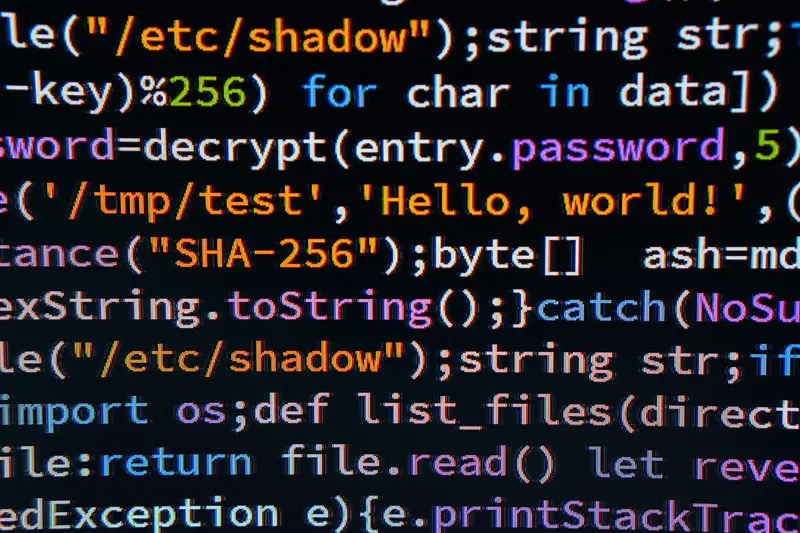What Interview Techniques Reveal True Developer Capabilities?
Have you ever hired a developer who looked perfect on paper, aced the technical interview, but then struggled to actually deliver when it mattered? You're not alone—and it's bloody frustrating when it happens. After years of building apps and working with development teams, I've seen this scenario play out more times than I care to count. The problem isn't that these developers lack skill; its that our interview techniques often miss the mark completely.
Most companies are still stuck using outdated hiring methods that don't actually reveal whether someone can build great software. They focus too heavily on memorised algorithms or theoretical knowledge that has little bearing on day-to-day development work. I mean, when was the last time you needed to implement a binary search tree from scratch in a real project? Exactly.
What really matters is finding developers who can think through problems, communicate clearly with teammates, and adapt when requirements change—because they always do. The best developers I've worked with aren't necessarily the ones who can recite design patterns like poetry; they're the ones who can look at a user's problem and figure out the simplest, most effective solution.
The most expensive hire isn't the developer with the highest salary—it's the one who can't actually do the job
This guide will show you interview techniques that actually work. We'll explore methods that reveal genuine problem-solving ability, collaborative skills, and the kind of practical thinking that leads to successful projects. No more hiring based on gut feelings or impressive CVs that don't translate to real-world performance. Let's figure out how to identify developers who will actually make your projects better.
Beyond the CV: Why Traditional Hiring Methods Fall Short
I'll be honest with you—I've seen brilliant developers get rejected because their CV didn't tick the right boxes, and I've watched companies hire people who looked perfect on paper but couldn't solve basic problems when it mattered. The traditional hiring process for developers is fundamentally broken, and its costing businesses serious money.
CVs tell you what someone has done, not what they can do. A developer might list "React, Node.js, MongoDB" but that doesn't tell you if they can architect a scalable system or debug a tricky performance issue at 2am when your app is crashing. I mean, anyone can copy and paste buzzwords from job descriptions.
The Problem with Degree Requirements
Some of the best developers I know are self-taught or came from bootcamps. They're hungry, practical, and often more up-to-date with current technologies than computer science graduates who learned Java in university five years ago. Yet many companies still filter out candidates without degrees before they even get a chance to prove themselves.
Why Years of Experience Mislead
Here's something that drives me mad: job postings asking for "5+ years experience" in technologies that have only existed for three years. But more importantly, years of experience doesn't equal quality of experience. Someone might have five years of copying and pasting code, whilst another person with two years has been solving complex problems and learning continuously.
- CVs don't show problem-solving ability
- Academic qualifications don't predict real-world performance
- Years of experience can be misleading
- Technical skill lists tell you nothing about application
- Cultural fit and communication skills are invisible on paper
The result? Companies miss out on talented developers whilst hiring people who interview well but can't deliver when it counts. We need better methods to identify genuine capability.
Technical Skills vs Problem-Solving Ability
Here's the thing about hiring developers—most people get completely hung up on the technical skills bit. I mean, I get it; you want someone who knows their React from their Angular, their Python from their JavaScript. But honestly? I've seen developers with incredible technical knowledge who couldn't solve their way out of a paper bag when faced with a real problem.
Technical skills are like having a really good toolbox. Problem-solving ability is knowing which tool to use and when. You can teach someone a new framework in a few weeks, but teaching someone how to think through complex problems? That's much harder.
When I'm interviewing developers for our projects, I pay attention to how they approach unknowns. Do they panic when they don't immediately know the answer, or do they start breaking the problem down into smaller pieces? The best developers I've worked with—the ones who've helped us deliver mobile app projects that actually work in the real world—they're the ones who ask good questions first.
Ask candidates to explain how they'd approach a problem they've never encountered before, rather than testing obscure technical trivia they could easily look up.
What Really Matters in Developer Assessment
- How they break down complex problems into manageable chunks
- Their ability to ask clarifying questions before jumping into solutions
- Whether they can explain their thinking process clearly
- How they handle getting stuck or making mistakes
- Their willingness to admit when they don't know something
The developers who've contributed most to our successful app launches weren't necessarily the ones with the most impressive technical credentials. They were the ones who could look at a user problem, understand what needed solving, and figure out the best way to get there—even when it meant learning something new along the way.
Live Coding Sessions That Actually Work
Look, I'll be honest—most live coding sessions are a complete nightmare. I mean, watching someone sweat through a whiteboard algorithm while you stare at them? It's brutal for everyone involved. But here's the thing: when done properly, live coding can reveal more about a developer's capabilities than any other interview technique.
The key is making it feel like actual work, not some abstract puzzle. I always give candidates a problem that's similar to what they'd face in our day-to-day development. Maybe it's debugging a simple API endpoint or adding a feature to an existing mobile app component. Nothing fancy—just real work that shows how they think through problems.
Setting Up Success
First off, let them use their own laptop. Seriously, why would you make someone code on an unfamiliar setup? They can Google things, check documentation, even look at Stack Overflow. That's what real development looks like, isn't it?
I also tell them upfront that I'm not looking for perfect code. I want to see their thought process, how they break down problems, and whether they ask good questions. Some of my best hires have been developers who got stuck but asked really insightful questions about the requirements.
What Actually Matters
Here's what I'm really watching for during these sessions:
- Do they read the problem carefully before jumping in?
- How do they handle getting stuck—do they panic or methodically work through it?
- Are they thinking about edge cases and user experience?
- Do they write code that other people could actually maintain?
- Can they explain their decisions clearly as they go?
The developers who excel in these sessions aren't necessarily the fastest coders. They're the ones who think like problem-solvers first, programmers second. And honestly? Those are exactly the people you want building your mobile apps.
Behavioural Questions for Developer Roles
Right, let's talk about something that makes a lot of hiring managers uncomfortable—behavioural questions. I get it, they feel a bit fluffy when you're trying to hire someone to write code. But here's the thing: technical skills are just one piece of the puzzle. The developers who thrive in real projects? They're the ones who can handle pressure, learn from mistakes, and work well with others.
I've seen brilliant coders who couldn't handle feedback, and average programmers who became team leaders because they knew how to communicate. That's why behavioural questions matter more than most people think. But—and this is important—you need to ask the right ones. Skip the generic "tell me about a time you showed leadership" nonsense. Instead, focus on situations that actually happen in development work.
Questions That Actually Matter
Ask about debugging disasters: "Walk me through the most frustrating bug you've encountered and how you solved it." This tells you about their problem-solving process and persistence. Or try "Describe a time when you had to work with code you thought was terrible"—their answer reveals how they handle legacy systems and whether they can stay professional when criticising other people's work.
The best developers aren't just good at writing code; they're good at working with people who write code
Here's one I love: "Tell me about a project that didn't go as planned." Everyone has these stories, and how they tell it shows you if they take responsibility or blame others. Do they focus on what went wrong, or what they learned? The difference is huge. Look for developers who can admit mistakes without making excuses—these are the people who'll actually grow in your team.
Portfolio Reviews and Code Assessment
Looking at a developer's portfolio is like getting a sneak peek into their mind—how they think, what they prioritise, and honestly, whether they actually wrote the code they're showing you. I've seen portfolios that look incredible on the surface but fall apart the moment you ask a few probing questions about the implementation.
The key isn't just looking at what they've built; its understanding how they built it and why they made certain decisions. I always ask developers to walk me through their favourite project in their portfolio. Not the most impressive one or the most recent—their favourite. The passion in their voice when they talk about something they genuinely enjoyed building tells you everything about their motivation and curiosity.
What to Look For in Code Quality
When reviewing actual code, I'm not hunting for perfect syntax or the latest framework trends. I want to see clean, readable code that someone else could maintain. Are their variable names descriptive? Do they comment their code appropriately? Can I follow their logic without getting lost in overly clever solutions?
One thing that really stands out is how they handle edge cases and error handling. Junior developers often focus on the happy path—everything works perfectly, users always input valid data, and APIs never fail. Experienced developers know that's not how the real world works, and their code reflects that understanding.
Spotting Red Flags in Portfolios
Be wary of portfolios that only show perfect, polished projects without any mention of challenges or learning experiences. Every developer has written code they're not proud of or hit roadblocks that forced them to rethink their approach. If they can't discuss these moments, they might not be as experienced as they appear—or worse, they might not have actually worked on the projects they're presenting.
Team Collaboration and Communication Tests
Here's where developer interviews get really interesting—and where most companies mess up completely. You can have the most technically brilliant programmer in the world, but if they cant work with others or explain their thinking, they'll actually slow down your entire development process. I've seen it happen more times than I care to count.
The best way to test this? Give them a real problem that requires collaboration. I like to set up mock scenarios where the candidate needs to explain a technical concept to a non-technical stakeholder (hint: that's you playing the role). Watch how they break down complex ideas. Do they use jargon and get frustrated when you dont understand? Or do they adapt their communication style and find creative ways to explain things?
Practical Collaboration Exercises
One technique that works brilliantly is the "pair programming with a twist" approach. Have them work through a problem while explaining their thought process out loud, but interrupt them with questions or suggest alternative approaches. You're not trying to be difficult—you're seeing how they handle feedback and whether they can collaborate when someone challenges their initial approach.
Record a short video call during the technical interview. You'll be surprised how much you notice about their communication style when you watch it back later. Do they listen actively or just wait for their turn to speak?
Another test I use involves giving them a buggy piece of code and asking them to work with another team member (could be you or an existing developer) to identify the issue. The technical problem is secondary here; you're really watching how they share ideas, ask questions, and build on other peoples suggestions.
- Can they explain technical decisions in simple terms?
- Do they ask clarifying questions when requirements are unclear?
- How do they handle disagreements or conflicting opinions?
- Are they comfortable admitting when they dont know something?
Remember, you're hiring someone who'll need to work with designers, project managers, and other developers daily. Technical skills can be taught more easily than handling communication barriers with development teams—so dont overlook this part of the assessment.
Red Flags During Developer Interviews
After years of interviewing developers, I can spot trouble from a mile away. Some red flags are obvious—like claiming to be an expert in every technology under the sun. But others? They're more subtle and can easily slip past even experienced hiring managers.
The biggest warning sign isn't technical incompetence; it's attitude. I've seen developers who could code circles around me but couldn't work with a team to save their life. When someone dismisses user feedback as "stupid" or refers to their previous colleagues as "idiots," run. These developers will poison your team culture faster than you can say sprint planning.
Communication Red Flags
Pay attention to how they explain technical concepts. If they can't break down their code in simple terms, they'll struggle with stakeholder meetings and user requirements. I once interviewed someone who spent ten minutes explaining a basic function using jargon that would make a computer science professor's head spin. That's not expertise—that's insecurity masquerading as knowledge.
Problem-Solving Warning Signs
Watch out for developers who immediately jump to the most complex solution without considering simpler alternatives. Mobile development is all about constraints—battery life, screen size, processing power. If they're suggesting blockchain solutions for your loyalty programme app, they've missed the point entirely.
Another major red flag? Blaming external factors for every project failure. Good developers take ownership and learn from mistakes. If everything was always someone else's fault, you're looking at a future headache. Trust me on this one—I've learned the hard way that technical skills can be taught, but accountability and teamwork? Those are much harder to fix.
Building Your Interview Process
Right, so you've got all these techniques and you know what to look for—but how do you actually put it all together? I mean, you can't just throw every single method at candidates and hope for the best. That's going to be exhausting for everyone involved.
Start with a phone screening. Keep it short, maybe 20 minutes. Ask about their experience, why they're looking to move, and throw in one or two basic technical questions. Nothing fancy—just enough to weed out people who've massively oversold their skills on their CV. You'd be surprised how many people claim five years of React experience but can't explain what JSX is!
Structure Your Technical Round
For the main technical interview, I like a three-part approach. Begin with portfolio review—15 minutes discussing their actual work. Then move into live coding for about 45 minutes; not leetcode nonsense, but something that mirrors real work they'd be doing. Finally, wrap up with behavioural questions focused on collaboration and problem-solving.
The best developers I've hired weren't necessarily the ones who coded fastest, but the ones who asked the right questions and communicated their thinking clearly
Keep It Realistic
Here's the thing—your interview process should reflect your actual work environment. If you're a startup that moves fast and breaks things, don't spend three hours on perfectionist coding exercises. If you're in fintech where precision matters, then yes, dig into their attention to detail. Make sure your team members are involved too; they'll be working with this person daily, so their input is invaluable. And please, keep the whole process under four hours total. Good developers have options, and they won't stick around for marathon interview sessions.
Conclusion
After years of interviewing developers for mobile projects, I've learned that finding the right person isn't about ticking boxes on a technical checklist. Sure, they need to know their Swift from their Kotlin, but what really matters is how they think, communicate, and solve problems under pressure.
The developers who've delivered the best results for our clients? They're the ones who asked thoughtful questions during the interview, admitted when they didn't know something, and showed genuine curiosity about the project's goals. They demonstrated their problem-solving process clearly, even when they got stuck on a coding challenge.
Here's what I've found works best—combine multiple interview techniques rather than relying on just one. A portfolio review tells you about past work; live coding shows current skills; behavioural questions reveal how they handle stress and collaboration. Each technique fills in gaps the others might miss.
Don't forget the soft skills either. Mobile development is rarely a solo endeavour; your developer will need to work with designers, project managers, and stakeholders who speak different languages (metaphorically speaking!). The ability to explain technical concepts to non-technical people is absolutely vital in our industry.
Most importantly, trust your instincts. If something feels off during the interview process, it probably is. I've hired technically brilliant developers who caused more problems than they solved because they couldn't work well with others. On the flip side, I've hired people with slightly less experience but great attitudes who became some of our most valuable team members.
Build your interview process, test it, refine it. But remember—you're not just evaluating them; they're evaluating you too.
Share this
Subscribe To Our Learning Centre
You May Also Like
These Related Guides

What Should You Look for in a Development Team’s Code Review Process?

Do I Need a Separate Team to Build Wearable Apps?



